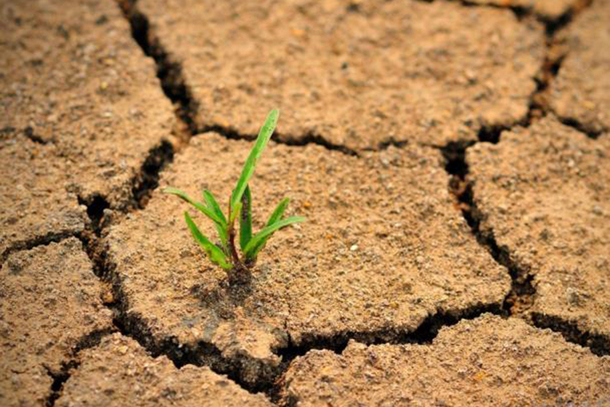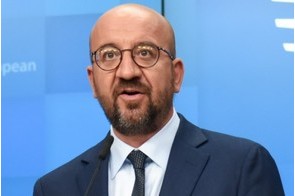Clarion call on Muhammadu Buhari to climate change action

Summary
As the President-elect of this propitious nation, we believe that you will not hesitate to drive Nigeria’s efforts to lead the fight against global warming in Africa.
Mr. President-elect, may I join President Goodluck Jonathan and other eminent African and world leaders to congratulate you on your victory at the 2015 presidential elections in Nigeria. Yes, on May 29, you will be sworn-in as President of the most populous black nation, the largest economy in Africa and one of the biggest oil producers in the world – and by far the largest in Africa – just to mention a few characteristics of the beautiful country that you are going to take over from Goodluck Jonathan.
Your presidency is starting after an election that has moved Nigeria up the ladder of democratic best practice, thanks to the demonstrated sportsmanship of President Jonathan. We hope you would continue in that spirit as you ascend to high office in Aso Rock.
Once the dust has settled, you know better than many of us the challenges that lie ahead.
Addressing macroeconomic conditions in the country is probably your number one priority. Top on your agenda also would be to stridently launch a campaign against Boko Haram insurgency to stop the mindless bloodletting and the possible rescue of the Chibok girls. Millions of Nigerians are yearning for good medical care. Currently, government expenditure on health in Nigeria is less than USD10 per capita, compared to minimum USD60 per capita recommended by the World Health Organisation.
Nigerians would like to see a reduction in capital and operating costs associated with providing power to run their businesses, if not the discomfort that comes with operating noisy generators in households and office buildings. Just to reiterate what you already know Mr. President-elect: Nigeria currently generates less than 5,000MW of electricity. Based on an electricity demand projection made by the Energy Commission of Nigeria, at 7 percent GDP growth scenario, Nigeria’s electricity demand would reach 119,200MW by 2030. Whether or not this is a realistic projection, Nigerians have waited for too long to have uninterrupted power supply and they are depending on your administration to fix the power situation, just as they are depending on you to fulfil your promise to eradicate corruption.
The list of challenges awaiting your government is long. But Mr. President-elect, please do us and yourself a favour and put climate change at the top of your agenda. And we will tell you just why.
Mankind’s biggest challenge
Mr. President-elect, the climate is changing. As the Inter-Governmental Panel on Climate Change (IPCC) has confirmed in many reports over the last three decades, climate change is not a hoax. The earth is getting warmer and warmer with the potential consequence of doing irreversible damage to our mother earth. The IPCC predicts an increase of global temperature to at least four degrees Celsius by the end of this century if enough mitigation actions are not taken early enough to reduce greenhouse gas emissions going into the atmosphere. The IPCC says at four degrees of warming, global climate risks are "high to very high." This would mean:
“...severe and widespread impacts on unique and threatened systems, substantial species extinction, large risks to global and regional food security, and the combination of high temperature and humidity compromising normal human activities..."
Some climate and biosphere modellings suggest that the impact of temperature rise on Africa would be catastrophic. The desertification that is fast increasing in some parts of Africa will skyrocket with drastic consequences on the populations. For example, the Chad Lake that provides drinking water to parts of Cameroon, Chad, Niger and Nigeria has lost 90 percent of its volume in the last 50 years and will probably disappear if the temperature on the earth surface continues to increase. Floods like what we saw in 2013 in some northern parts of Nigeria and Cameroon will continue with more devastating consequences. What is more worrying is that adaptation measures to climate change in Africa, whether financial or technical, are not always in place to reduce the effects of catastrophes that happen due to climate change.
The United Nations Framework Convention on Climate Change (UNFCCC) was signed in 1992 to lead the global fight against climate change by stabilizing and setting limits on greenhouse gas emissions. Several programmes and mechanisms have been derived from the UNFCCC and are ongoing, but the coordination and the pace are not always as satisfactory in terms of achieving manageable levels of emissions.
Let Nigeria lead
Nigeria is Africa’s largest economy and the continent’s most populous nation. Therefore, it behoves on the country to lead by example. As the President-elect of this propitious nation, we believe that you will not hesitate to drive Nigeria’s efforts to lead the fight against global warming in Africa.
Permit us to bring you up to speed on the current environmental situation in Nigeria and the implications for climate change:
- Nigeria has lost more than 50 percent of its forest cover between 1990 and 2010. This is according to the United Nations Food and Agriculture Organization. This is the highest deforestation rate in the world and it is mostly a cause of climate change and not a consequence. Reforestation needs to take place in Nigeria or at least deforestation should be more controlled.
- Desertification is increasing mostly in the northern parts of Nigeria and there would be environmental refugees sooner than later, like what is happening already in the horn of Africa where many people have left their homes because of severely unfavourable environmental conditions.
- The Chad Lake that gives fresh water to a sizeable part of Nigeria has lost 90% of its volume in just 50 years. This is due to climate change as confirmed by scientists.
- Nigeria is emitting 320 million tons of carbon dioxide per year, only second to South Africa on the continent.
Get climate funds
Mr. President-elect, a slightly good news amidst the challenges is that the international community is continuously putting in place mechanisms and systems to fight climate change, with the objective to keep the temperature rise on the earth below two degrees Celsius by the end of the century.
Developed countries have committed resources to support developing countries like Nigeria in this fight against global warming. Mechanisms put in place do not only help reduce emission of greenhouse gases. They also come with a sustainable development component. For example, if a renewable energy plant is setup in Nigeria, there will be close to no greenhouse gas emitted into the atmosphere by the plant and at the same time, the energy produced by the plant will power many businesses and bring about development into the country, apart from the jobs it will create directly and indirectly. We have published a number of articles in Financial Nigeria that have shown there is a correlation between energy consumption and development and we will continue to discuss these issues and more as energy is critical to bringing people out of poverty.
Mr. President-elect, what we would like to bring to your attention also is that African nations have not started to really take advantage of these mechanisms that have been put in place, some of which are financial. Most of these funds go to Latin America and Asia who have been quick on the uptake regarding climate change mitigation and adaptation.
Getting access to these funds require providing baseline studies on environmental impact assessment; giving reports and access for verification of projects once proposals are accepted and financing is secured etc. Many African countries are still stuck in the development assistance mindset where they get funds without much effort and they do whatever they wish with the funds. Unfortunately, ODA has brought about little development on the continent. Therefore, they have to accept a new development paradigm where countries have to provide concrete evidence for what they use development funds for.
We hope you will lead Nigeria to access some of these facilities available to fight climate change. Perhaps the first fund you would look at is the Green Climate Fund (GCF). Developed countries have committed to making available USD100 billion to developing countries by 2020 to fight climate change. Currently, there is USD10.2 billion available and the GCF is soon going to lunch request for proposals to finance projects. Many Asian and Latin American countries have GCF Readiness Plan in place. No African country has any yet.
Mr. President-elect, we can assure you that if the right people are put at the right place and with the right agenda, Nigeria can benefit a lot from these mechanisms.
Be Africa’s next climate czar
Without undermining the work that some African leaders are currently doing in the fight against climate change, we think the late Ethiopian Prime Minister Meles Zenawi (who passed away in 2012) and Professor Wangari Maathai of Kenya (who passed away in 2011) are still being dearly missed. These two individuals were beacons in their global warming advocacy in Africa. Late Professor Maathai promoted massive reforestation in Kenya and neighbouring countries and she was the initiator and chair of the Congo Basin Forest Fund that gives grants to support reforestation initiatives in the Congo Basin region. She was the first African woman and one of the very few Africans to win the Noble Peace Price after her long fight against climate change
The late Prime Minister Zenawi supported the United Nations Environment Programme (UNEP) campaign, “billion tree,” and helped the planting of over 1.7 billion trees in Ethiopia from 2007 till his demise, out of a total of 12.6 billion trees planted in 193 countries.
President Ali Bongo Ondimba of Gabon is trying to take the lead on climate change actions in Africa, but we strongly believe that you, President-elect, can play a major role in the global fight against climate change. You have all it takes to be that leader and we will support you in every way we can as we wish you the very best.
Author: Durando Ndongsok, a Financial Nigeria Columnist, is Managing Director of the Cameroon based S2 Services Ltd. S2 Services promotes business approach to sustainable development with the belief that this is the best approach to develop Africa as philanthropy has shown its limits. Durando has been working for several years in the CDM industry. Email: d.ndongsok@s2-gmbh.com; URL: www.s2-gmbh.com
Related
-
EU leaders reach deal on 55 per cent carbon emissions target by 2030
The deal is expected to help the 27-member bloc achieve its green transition plan, which entails reaching net-zero GHG ...
-
Mathieu Flamini’s billion dollar biofuel company
Flamini invested millions of dollars in the company, as years of research went on and scientific breakthroughs were ...
-
Panalpina, CMA CGM sign sustainability agreement for maritime transport
CMA CGM and Panalpina have committed to reduce CO2 emissions by 30 percent and 22 percent, respectively, by 2025.








